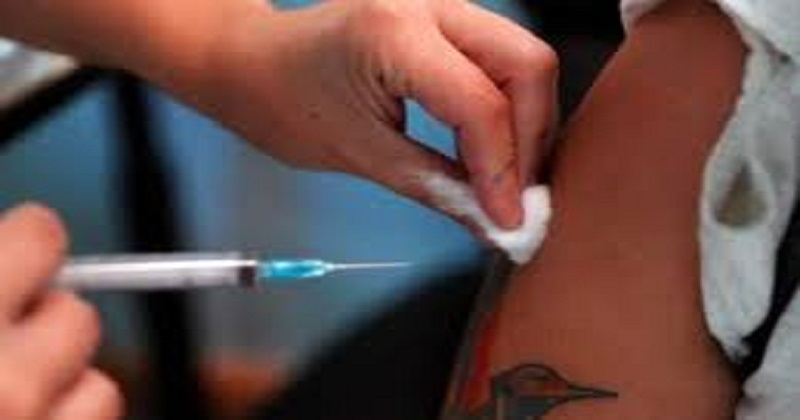
The government of Himachal Pradesh was not deterred by waterfalls, deep valleys, steep cliffs, and narrow treks when it decided to vaccinate the residents of Malana village against Covid-19. It was their supreme deity — Jamlu Devta. A small village in Himachal’s Parvati Valley with approximately 1,000 adults, Malana is famous among travelers for its production of hashish or cannabis resin, which is grown in the region.
Locals consider Malana village to be the oldest democracy in the world, and it had become a roadblock for the state government in achieving its 100% vaccination goal. As Malanis believe themselves to be ‘pure’ and that outsiders will harm them, they consider outsiders ‘impure’. Locals here call the village of taboos a place of no touching. They do not allow outsiders into the village. Tourists have to pay a fine if they touch anything, even the walls in some places.

‘Construction of school buildings, roads, etc are also initiated by the department only with permission from the local deity Jamlu Rishi. But convincing them to take the vaccine shots was a challenge since they had many reservations about the vaccine,’ Ashutosh Garg, deputy commissioner of Kullu district, told News18.com. After a three-hour trek, the officers reached the village. Kardaars, or representatives of the deity, make all decisions in the village. While the state officials went to take concurrence from the deity not for the first time, it was much more difficult this time.
The concerns of Malanis?
As part of a two-hour discussion with the pujaris (priests) – a council of 11 people considered to be representatives of the spiritual deity – the health teams discussed a number of issues. ‘People believe that their village is protected by Jamlu Rishi. While their deity (for us at least), is a non-living being, we can only speculate on how these representatives read and interpret his decisions’.
A team of state officials met in the center of the village to discuss the issue. Their first concern was that the Covid-19 vaccine would make them ‘impure’. Garg pointed out that their interpersonal interactions are very difficult to understand. ‘We speak Hindi with them. Outsiders cannot understand Kanashi, the local language, which is not spoken anywhere else in the world. You can’t understand what they’re saying to each other’, she added.
Pujaris, who feared the vaccine would make them ‘impure’, led the discussion. The side effects of the vaccines were another concern. They were concerned that vaccines might cause ‘disabilities’. ‘As a result, they are fiercely protective of their lineage; they are also apprehensive of external influences. It is not part of their lifestyle or culture to seek or use products manufactured outside of their culture,’ he explained.

Answers to the Concerns?
Garg believes that the mission of all the senior officers landing at the village allowed them to partially win the battle. ‘It had a symbolic impact. Senior officials met with them and were fully vaccinated’, she said. While the team of officers shared various data points, case studies, and research papers to demonstrate the benefits of taking Covid-19 vaccines, they also recommended that the government of India might make it mandatory for everyone to be fully vaccinated at some point in the future.
The village council was told that it was a safe procedure and did not have any side effects. If the government of India starts granting certain benefits only to those who have received the Covid-19 vaccination tomorrow, they will regret it. In addition to entry at certain places, freedom to roam freely, and benefits within government schemes, the final point that had probably the biggest impact was the safety of both tourists and villagers.
Read more: The only job for women in Kabul is to clean female bathrooms: Report
Malana earns a decent amount of revenue from tourism. Locals rely on tourists for income and livelihood. Previously, as soon as Covid was detected, the village was closed down completely. In order to resume entry of a foreigner, the villagers had to get vaccinated. ‘In addition, neither the tourists nor the locals will be afraid of catching Covid-19 from foreigners. At long last, we were given permission to begin the drive. In just three days, the vaccination drive was completed. We have already vaccinated around 200 people with the second dose as well’, Garg said.

Post Your Comments